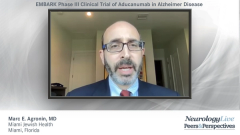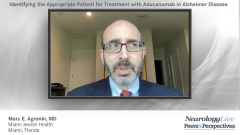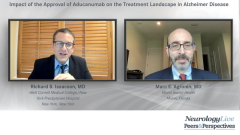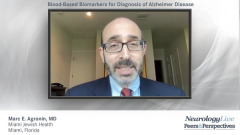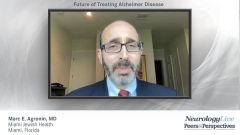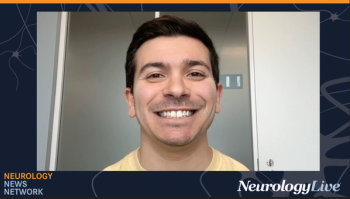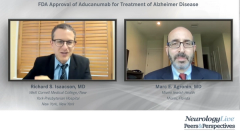
EMBARK Phase III Clinical Trial of Aducanumab in Alzheimer Disease
The importance of the ongoing EMBARK phase III clinical trial and the collection of real-world data on the use of aducanumab is discussed.
Episodes in this series

Richard Isaacson, MD: So much to talk about, as you mentioned earlier, the EMBARK study. The EMBARK study is a phase 3b open-label single-arm study, safety study also, to look at not just safety, but also efficacy of Aducanumab and it's going to be looking at people for 2 years, maybe it's 24 months, to understand what is truly the long-term efficacy and safety. The other part about this next phase of real-world clinical research in our clinical practices, you and I, and hundreds of other, thousands, who knows how many physicians are going to be prescribing this drug at some point, and the real-world impact kind of like the phase 4 outcomes of how aducanumab works and what the safety is. This is a very unique situation because we're going to be collecting data and the FDA said that the approval is contingent on collection of further data and clinician-researchers like us. Clinicians are going to at some point have to report these real-world outcomes and study them in a rigorous way. How do you think a physician should talk about this with a patient? You have an FDA approval, but you also have the need to continue to study whether or not it's effective and safe. How do you talk about that with a patient?
Marc E. Agronin, MD: This is a big challenge. It's important that the EMBARK study continues because we need to continue to gather data on individuals on aducanumab and it is open-label. These are individuals who've been on it before, and so we'll see over time whether – I think the FDA has given signal that this data is going to be really clear. It's going to be clear in terms of helping to determine to some extent the fate of aducanumab, but the problem is, once you've led the horse out of the barn, can you really put it back? Can you imagine if the data from EMBARK is not as positive as the other data a year or 2 years from now, and already hundreds, if not thousands of people are on the treatment? What will you do? I think that's going to be a challenge. The other issue is, how are we going to identify these individuals? You and I know that with the diagnostic process, you really have to take it seriously. These are not just shooting from the hip diagnoses.
My concern is that there's going to be individuals who are going to come into their primary care doctors and other individuals who this is not what they do every day and there's going to be a lot of pressure to just put them on this treatment. Will the diagnostic process be as careful? If it's not outlined now, if it's not in the package label, what will it entail? I think there's a lot ahead that we really need to determine. I'm also concerned about the impact of this on other research studies. At our MIND Institute center at Miami Jewish Health, we conduct all the major Alzheimer's disease trials, and already I'm hearing from subjects who say, “Well, why would I go into a placebo-controlled trial if I can get the real thing?” At the same time, we know, and I know as an investigator that, in general with these studies, if you're not rigorously looking at the metrics of it, it can be hard to really tell what's going on with someone. If we're doing this treatment in the real world, and it's approved, and we're not really collecting any data on it, how do we know we're slowing it down? It would be nice if somehow, we can build into the real-world use of this, some set of metrics that we can follow over time, and this data can help over time. I think that's really important. I think that will help address some of the concerns that I'm hearing from a lot of clinicians out there on this.
Richard Isaacson, MD: Dr Agronin, thanks so much.
Marc E. Agronin: Thank you. My pleasure.
Transcript Edited for Clarity
Newsletter
Keep your finger on the pulse of neurology—subscribe to NeurologyLive for expert interviews, new data, and breakthrough treatment updates.

